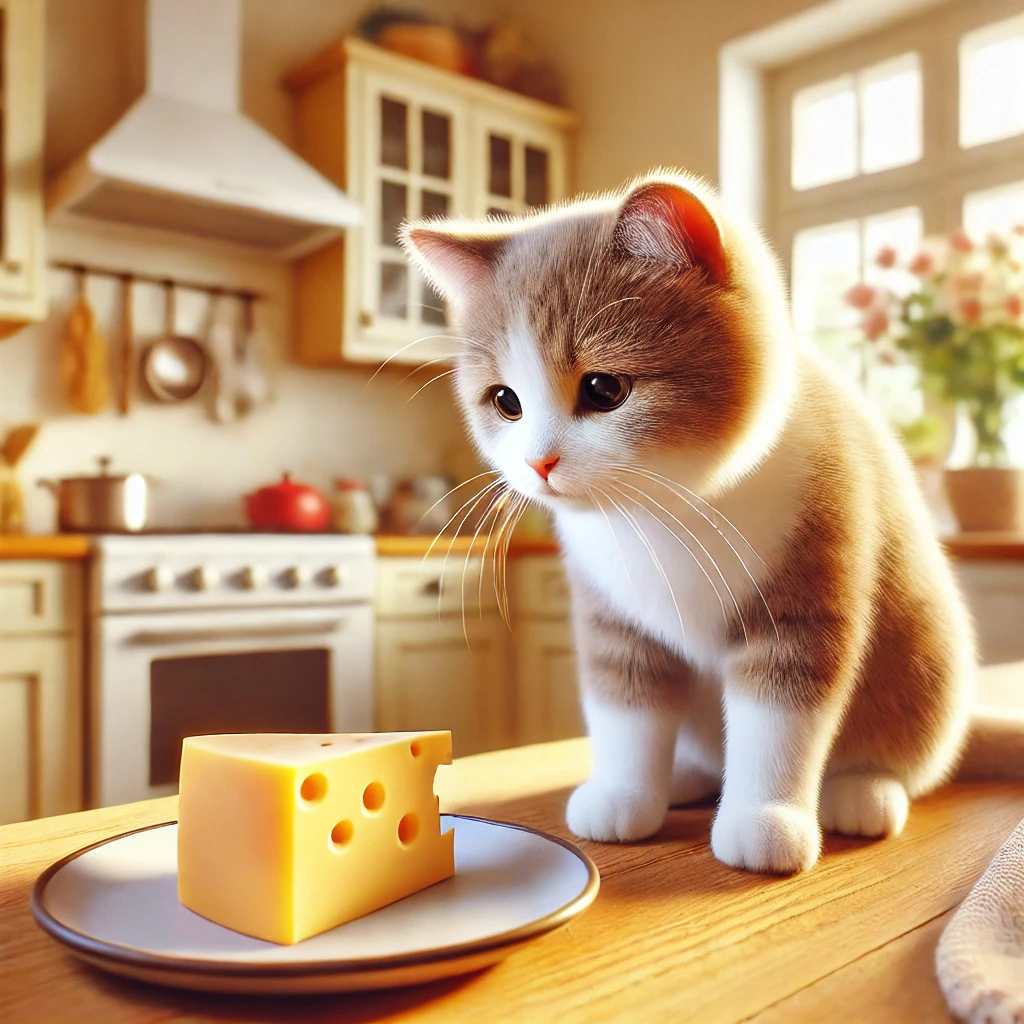Can Cats Eat Cheese is a common question among pet owners who want to share their favorite snacks with their furry friends. While cheese is a popular treat for humans, its effects on cats are not as straightforward. In this article, we will explore whether cheese is safe for cats, the potential risks and benefits, and how to incorporate it into your pet’s diet responsibly.
read it: How to Keep F7 Savannah Cat Entertained?
Is Cheese Safe for Cats?
The first thing to consider when asking Can Cats Eat Cheese is safety. Cheese is not toxic to cats, but most adult cats are lactose intolerant. This means they lack the enzyme needed to digest lactose, which is present in cheese. While a small piece of cheese is unlikely to harm your cat, larger quantities could lead to digestive issues like vomiting, diarrhea, or bloating.
Why Are Cats Lactose Intolerant?
Understanding why Can Cats Eat Cheese often comes with digestive problems requires a closer look at a cat’s biology. Kittens produce lactase, the enzyme needed to break down lactose in their mother’s milk. As cats grow older and transition to solid food, their production of lactase decreases. This makes most adult cats lactose intolerant and unable to process dairy products efficiently.
Types of Cheese Cats Can Eat
If you’re wondering Can Cats Eat Cheese, the type of cheese matters. Some cheeses are lower in lactose and may be safer in small amounts. These include:
- Cheddar
- Swiss
- Parmesan
However, avoid flavored or processed cheeses that contain additives like garlic or onions, as these are toxic to cats. Blue cheese and moldy cheeses are also off-limits due to potential health risks.
read it: Are Orchids Toxic to Cats?
How Much Cheese is Safe for Cats?
When considering Can Cats Eat Cheese, portion size is critical. A piece of cheese no larger than a dice is considered safe as an occasional treat. Feeding too much cheese can lead to health problems, including obesity and gastrointestinal discomfort.
read it: Why do cats lick you?
Benefits of Feeding Cheese to Cats
While cheese is not a necessary part of a cat’s diet, small amounts can be beneficial in certain situations. For instance:
- Medication Aid: Wrapping a pill in a small piece of cheese can help administer medication to your cat.
- Occasional Treat: As a rare treat, cheese can be a tasty way to reward your cat.
However, these benefits should be weighed against the potential risks.
Risks of Feeding Cheese to Cats
The risks associated with feeding cheese to cats include:
- Digestive Issues: Lactose intolerance can cause vomiting, diarrhea, and gas.
- High Fat Content: Cheese is calorie-dense and can contribute to weight gain.
- Salt Poisoning: Excessive salt in cheese may harm your cat’s health, leading to dehydration or kidney problems.
read it: can you feed fancy feast kitten to adult cat?
Can Kittens Eat Cheese?
The question of Can Cats Eat Cheese also applies to kittens. While kittens can digest lactose better than adult cats, cheese is not an ideal food for them either. Kittens require a balanced diet designed for their growth and development, and cheese does not provide the nutrients they need.
Healthy Alternatives to Cheese for Cats
Instead of wondering Can Cats Eat Cheese, consider healthier treat options for your feline friend:
- Cooked chicken or turkey
- Freeze-dried cat treats
- Catnip or cat grass
These alternatives are more aligned with a cat’s natural dietary needs.
How to Tell if Cheese is Affecting Your Cat Negatively
If you’ve already fed cheese to your cat and are still wondering Can Cats Eat Cheese, observe their behavior and health. Symptoms of a negative reaction include:
- Vomiting
- Diarrhea
- Gas
- Lack of appetite
If these symptoms occur, stop feeding cheese immediately and consult your veterinarian.
Table: Quick Facts About Can Cats Eat Cheese
| Question | Answer |
|---|---|
| Can Cats Eat Cheese? | Yes, but only in small quantities and as an occasional treat. |
| Is Cheese Toxic to Cats? | No, but it can cause digestive issues due to lactose intolerance. |
| Best Types of Cheese? | Low-lactose options like cheddar, Swiss, or Parmesan. |
| Risks of Cheese for Cats? | Digestive issues, obesity, and salt poisoning. |
| Healthy Alternatives? | Cooked meat, freeze-dried treats, and catnip. |
Conclusion
So, Can Cats Eat Cheese? The short answer is yes, but with caution. While cheese is not toxic to cats, it is not a necessary or particularly healthy addition to their diet. If you choose to feed cheese to your cat, do so sparingly and opt for low-lactose varieties. Always prioritize your cat’s overall health by offering treats specifically designed for their dietary needs. Understanding the risks and benefits ensures your feline companion stays happy and healthy.

